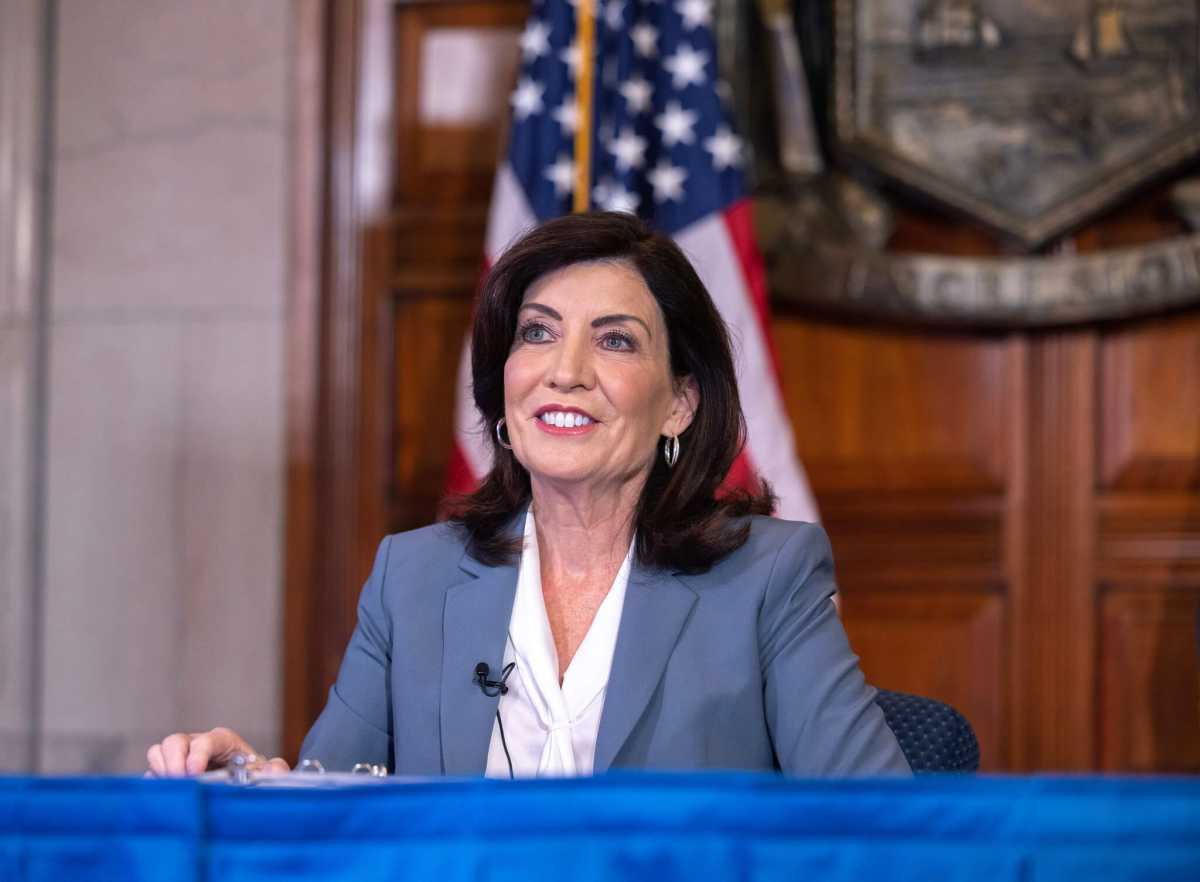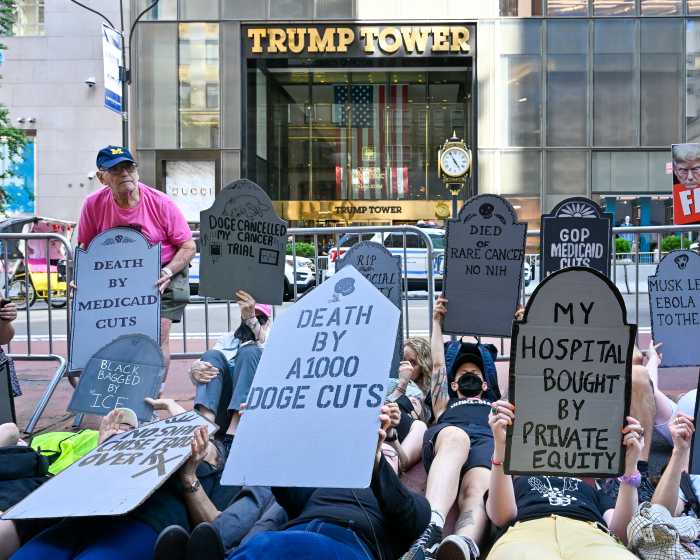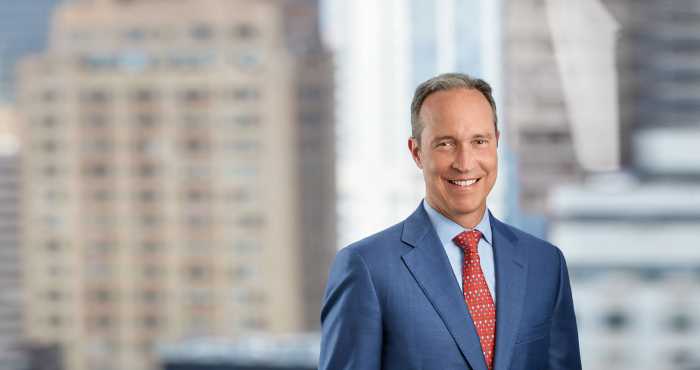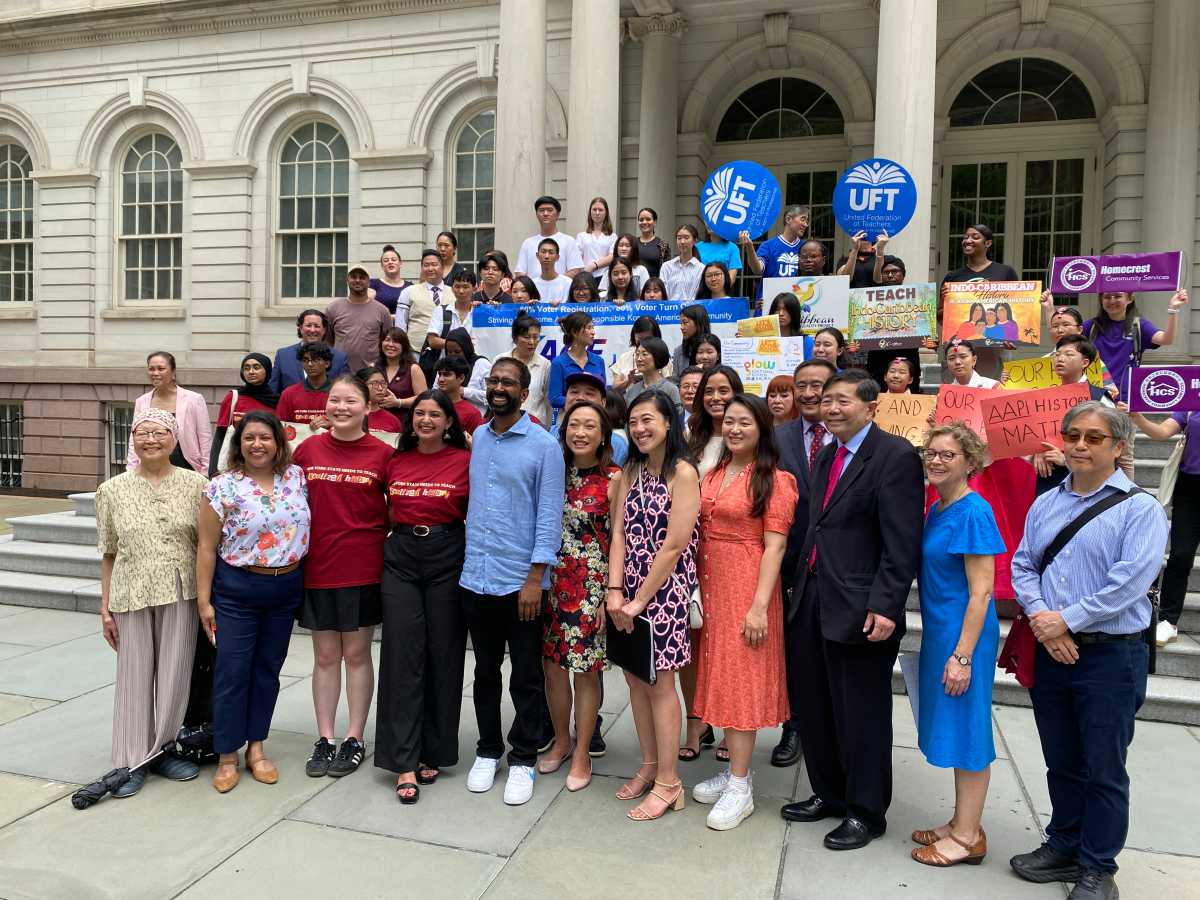There is now a deal to reopen 14 “zombie” charter schools in New York City — one of the many points of contention that has prevented the New York State fiscal year 2024 budget from being finalized on time.
The charter school agreement reached on April 27 includes authorizing the issuance of “zombie” charters — charters that were surrendered, revoked, or terminated. When these new schools are authorized, they would be the first new charters issued downstate since 2019.
Hochul proposed lifting state’s charter school cap in February to pave the way for 85 new charter schools in the state, including in New York City. New York State has a cap of 460 charters and New York City has a cap of 275 charters, and currently no room for more.
This decision could then permanently authorize “the reissuance of any charter originally issued to a charter school that subsequently closed after July 1, 2015, due to surrender, revocation, termination or non-renewal.”
Charter school leaders and advocates released statements following Wednesday night’s charter school deal — though others derided the plan as harming the entire public school system at large. Two surveys conducted in January found that roughly 30% of respondents expressed support for charter school expansion in New York.
James Merriman, the CEO of the New York City Charter School Center, called Hochul’s decision a “win for families and their children.”
“She understands that having both a strong and growing charter sector makes all of our public schools stronger and better able to meet the complex needs of our students and families,” Merriman said. “For years, leaders, including many of color, have been on hold to open innovative new schools in NYC communities.”
Eva Moskowitz, the founder and CEO of Success Academy, the largest charter school network in New York City, said that reopening 14 “zombie” charters doesn’t come close to increasing enough educational opportunity and “is a travesty for poor kids and families of color.”
“The victims of this educational neglect are low-income Black and Brown children, and Albany has bargained away their access to high-quality schools,” Moskowitz said.
Jane Martínez Dowling, the chief external affairs officer of the KIPP NYC charter school system, said that the KIPP network has seen the benefits of charter school education has for the thousands of diverse families it serves.
“We see firsthand the promise that a public charter education can unlock for students and families – especially those from low-income communities and communities of color,” Martínez Dowling said.
Emily A. Kim, the founder and CEO of Zeta Charter Schools, a network serving Pre-K through 5th graders in The Bronx and Upper Manhattan, said she supports Hochul’s deal, and that there must be continued pressure to provide children with more access to charter schools.
“As we move forward, we look forward to working with Governor Hochul and legislators to lift the cap and advocate for policies that ensure equitable access to high-quality education,” Kim said.
Cap change will ‘further burden,’ critics say
Several New York City education officials sent a letter to Senate Majority Leader Andrea Stewart-Cousins and Speaker Carl Heastie on March 24 asking them to reject Hochul’s proposal to raise the charter school cap during the final budget negotiations.
City Council Education Committee Chair Rita Joseph and several City Council members, including Pierina Ana Sanchez (D-14), Shahana Hanif (D-39), Althea Stevens (D-16), Lincoln Restler (D-33), and Alexa Avilés (D-38), signed off on that letter.
The missive stated that “removing the geographic cap will further burden the Department of Education and force New York City to pour more money into paying the rent for charter schools. Expanding charters will negatively impact children with special needs, students in temporary housing, multilingual learners, and other vulnerable students while draining district public schools of resources.”
“Big billionaires should not be allowed to influence our budgets while working class families are continuously left out,” Joseph said.
Education leaders and nonprofit leaders also shared their thoughts in statements following the deal.
Olivia Leirer, the co-executive director of New York Communities for Change, said public schools should not be privatized, especially amidst school budget cuts.
“While Governor Hochul is proposing the expansion of Charter schools, at the same time, Mayor Adams wants to cut school budgets, which will force our public schools to continue doing more with less,” Leirer said.
Leonie Haimson, the executive director of Class Size Matters, pointed to a potential loss of “precious space” from New York City’s public schools, which could infringe upon the need and requirements for smaller class sizes.
Said Haimson: “The legislature should not only firmly reject the governor’s proposal, but remove the requirement that DOE provide charters with space or pay for their rent and require far more financial oversight, transparency and accountability of the charter sector.”
Michael Mulgrew, the president of the United Federation of Teachers union, said Hochul made the wrong decision.
“Unfortunately, the governor listened to the demands of a handful of billionaires and revived 14 zombie charters for New York City,” Mulgrew said. “Now it’s time for the governor to listen to New York parents who want accountability and transparency from the charter sector and an end to loopholes that benefit corporate charters at the expense of our public schools.”
Read more: Two Killed by L Train in Manhattan, Investigation Ongoing





































